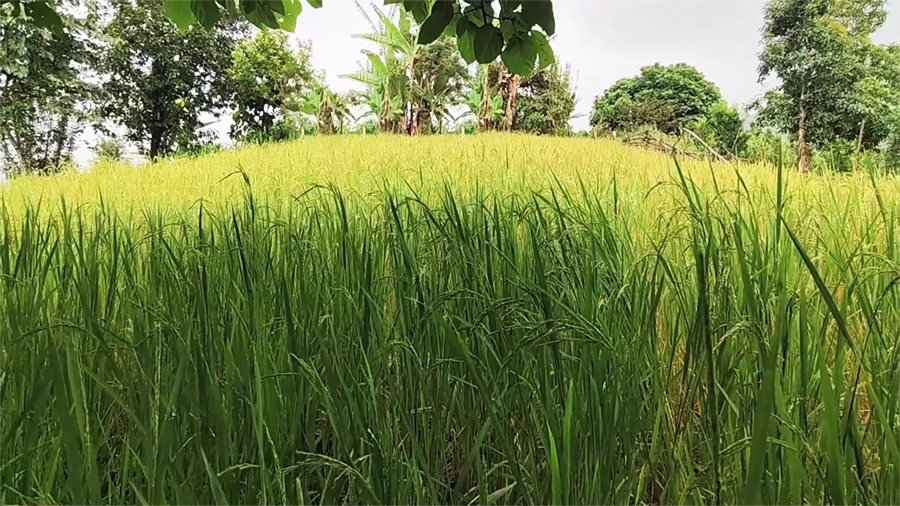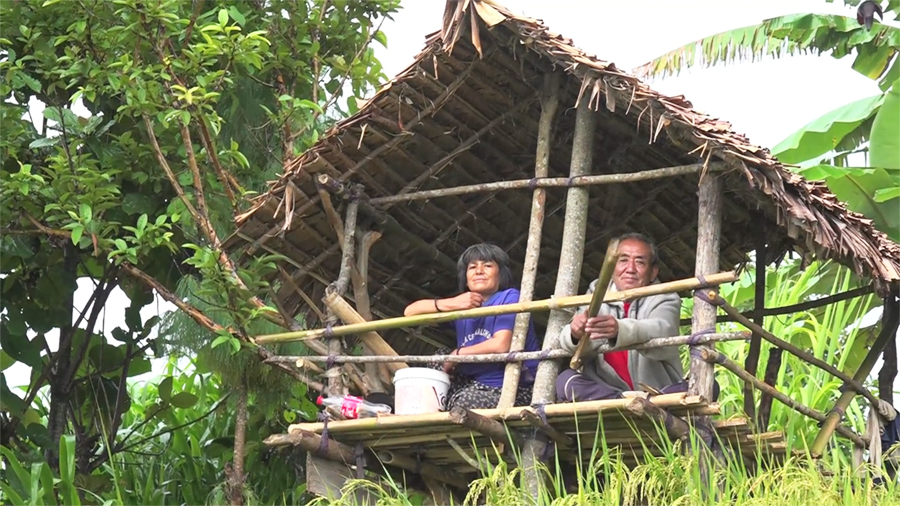
In Samdrup Jongkhar, eight households in Wangphu Gewog’s Pangthang village are reviving upland paddy cultivation, a practice common in the village around three decades ago. Upland paddy relies entirely on rainfall for water and is grown in hilly or mountainous areas where flat, flooded paddy fields are unavailable. Through this initiative, villagers hope to preserve traditional farming methods and promote food security within their community.
Once a popular practice, upland paddy cultivation has gradually declined in Pangthang village due to the easy availability of imported rice.
However, some villagers have begun growing the forgotten crop again.
 One of them is 76-year-old Namgay. Despite the heavy rain, Namgay and his wife guard their crops from wildlife, eager to harvest the paddy in the coming months.
One of them is 76-year-old Namgay. Despite the heavy rain, Namgay and his wife guard their crops from wildlife, eager to harvest the paddy in the coming months.
Namgay says the revival of paddy cultivation aims not only to boost local agriculture but also to strengthen community ties and promote sustainable farming practices.
“I think cultivating our own crops will be better now, as the cost of imported rice is increasing. So, I am returning to traditional crops, which I had once stopped cultivating.”
Despite wildlife damaging the paddy, which previously led to the practice being abandoned, villagers are now encouraged to revive it.
Jamtsho, a resident said “Previously, many villagers used to cultivate upland paddy on a large scale, but we stopped. Now, we are growing it again in small quantities near our houses. The agriculture office has provided solar fencing, so we are able to cultivate traditional crops.”
Leydra, who is also a resident said “We stopped cultivating upland paddy due to conflicts with wildlife, and it became difficult because we had to do weeding almost five times, so the practice declined. Now, the agriculture office is providing seeds, and we are taking an interest in cultivating upland paddy again. If rice imports are banned, we would be left without rice to eat, so we are resuming it.”
Namgay is optimistic about the yield and is considering expanding the cultivation in the next season.
“We celebrate losar and celebrating it with locally produced food will be better. I do not know about my children, but I will continue cultivating it.”
According to district agriculture officials, more than three acres of land have been planted with upland paddy this year in Wangphu Gewog.
The agriculture office is encouraging villagers to take up upland paddy cultivation by providing necessary support, including technical assistance and materials wherever needed.
Kinley Wangchuk, Samdrup Jongkhar
Edited by Sherub Dorji







